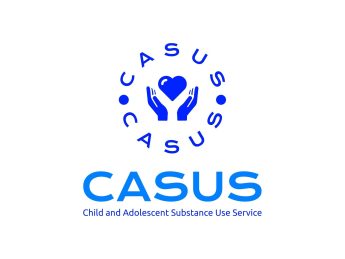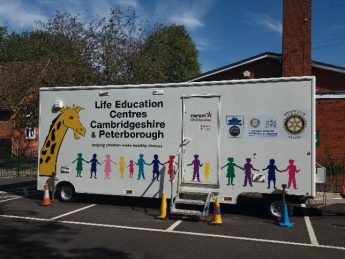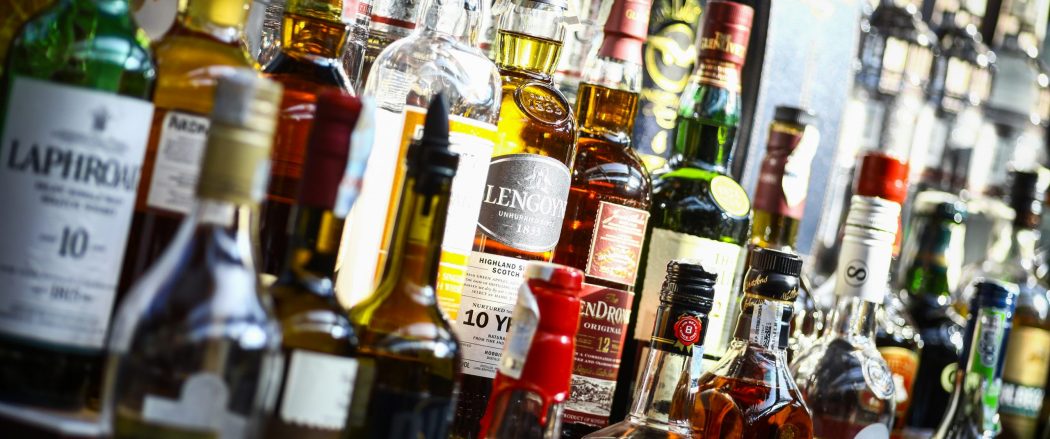To nurture the skills of resilience is key to providing young people with the ability to cope with stress, adversity, failure and challenges. Resilience is evident when young people have a greater ability to “bounce back” when faced with difficulties and achieve positive outcomes.
Resilience is required to say no to sharing an alcoholic drink with friends and to take responsibility for seeking expert advice and support when it is needed.
Learning about alcohol is included in Drug Education. Drug is a word which can conjure up very negative connotations. Many adults assume the purpose of Drug Education is solely to warn children and young people away from drugs using ‘just say ‘No’’ messaging. However, Drug Education in schools today is much more rounded and balanced. Teaching children and young people about alcohol focuses on harm reduction, delaying first use of alcohol and developing attitudes towards those who use alcohol at different times and for different purposes.
It aims to reduce the development of harmful patterns of alcohol misuse in later life, which may impact on aspiration, quality of life, physical health and mental wellbeing. Alcohol falls under the World Health Organisation of a drug as a substance ‘which affects how you think, feel or behave’. When teaching children and young people the skills they need to make healthy, informed choices about alcohol use, schools should build awareness of safety, identifying reliable information, sources of support, influences from friends, media and family, and development of attitudes to self, others and the law.
The issue locally and nationally
In Cambridgeshire and Peterborough, we have a clear picture of the patterns of alcohol use by young people. In Summer 2022, over 40 secondary schools participated in the Health-Related Behaviour Survey which explores levels of alcohol use. Contact the PSHE Service (mail to:[email protected]) for more information.
In Cambridgeshire in 2021, the percentage of Y8 and Y10 students who had had an alcoholic drink in the week prior to the survey was 22% – down from 25% in 2018. This figure has been falling since the survey began in 2002. 2% of pupils in 2021 (3% in 2018) responded that someone else bought alcoholic drink for them with their money in the 7 days before the survey, while 17% (19% in 2018) said they were given it.
These figures show that the majority of young people do not use alcohol regularly, whilst perceptions amongst young people and adults might be higher.
Nationally, admission episodes for alcohol-specific conditions for under 18s per 100,000 of the population has remained consistent across England in recent years. Whilst Peterborough (23.2) and the East of England (24.5) region have below England average (32.9), Cambridgeshire is above at 37.9.
- Alcohol and drug use by young people raise the risk of poorer immediate and long-term outcomes.
- Over 10 thousand secondary school pupils were excluded from school for either a fixed term or permanently in 2018-19 for alcohol and drug issues.
- PHE prevalence estimates suggest is that there are 26 children per 1,000 in England who live with a parent with an opiate or alcohol problem. That translates as 25 pupils in an average secondary school and 7 in an average primary school. That is based on an average secondary school having 965 pupils and an average primary school having 282 pupils.
What is known to work
Drug (including Alcohol) Education in isolation has a limited effect, if any. When Drug Education is delivered in the context of a holistic PSHE programme, where the school environment supports protective factors, the effectiveness is greatly increased. Pupils should receive Drug Education in a carefully sequenced programme, which presents the learning in age-appropriate segments, building on prior learning.
The most effective interventions include a focus on ‘risk and resilience’ factors, and multi-component programmes involving parenting interventions and support for individuals and families.
Although the focus of Drug Education is often a topic considering substances and their effects, the role which wider areas of PSHE play must not be underestimated. Learning about self-awareness, influences, resilience, healthy relationships and mental and emotional health all contribute to children and young people’s ability to make healthy, informed choices.
For Further information on good practice see Evidence Review -Effective drug and alcohol education (downloadable from the PSHE Association)
Key actions for schools to take
Alcohol is part of society and children and young people need to be supported to use alcohol, if they so choose, in a responsible and informed way. There are issues with alcohol use more immediate for schools and educators – use of alcohol can affect attendance and attainment in the short and long term.
Teachers should be aware of different religious and cultural views regarding the use of alcohol and should reflect these back to students, whilst also clearly stating the law relating to alcohol use.
Research has identified some of the things that make young people vulnerable to using alcohol and drugs. These include: being in trouble at school, having friends who take drugs and drink, starting to smoke early, and/or staying out late without parents’ knowledge. Conversely, there are also factors that can protect young people, including good family relationships, clear rules and boundaries and positive school environments.
By the end of primary school pupils should know:
- The facts about legal and illegal harmful substances and associated risks, including smoking, alcohol use, and drug taking.
Source: Relationships Education RSE and Health Education (DfE) Relationships Education, Relationships and Sex Education and Health Education guidance (publishing.service.gov.uk)
By the end of secondary school pupils should know:
- The facts about legal substances and illegal substances, including drug-taking, and the associated risks, including the link to serious mental health conditions.
- The physical and psychological risks associated with alcohol consumption and what constitutes (relatively) safe alcohol consumption.
- The physical and psychological consequences of addiction, including alcohol dependency.
Source: Relationships Education RSE and Health Education (DfE) Relationships Education, Relationships and Sex Education and Health Education guidance (publishing.service.gov.uk)
Source – DfE and PHE December 2020
Local Support

#POW
We’re a young people’s drug and alcohol service. We’re here to listen and support young people who are having trouble with alcohol and drugs. Who We Are We are a free and confidential drug and alcohol service for young people aged between 10 and 18. We won’t judge or tell you what to do, we
Read More About #POW
CASUS
Cambridgeshire Child and Adolescent Substance Use Service (CASUS)provides information, support and specialist treatment in Cambridgeshire around drug and alcohol use to young people under 18 years of age and their families. CASUS is a NHS team that specialises in working with young people who have developed problematic or harmful use of substances. We see young
Read More About CASUS
Keep Your Head
The Cambridgeshire and Peterborough Integrated Care System (ICS) Partners have refreshed the Keep Your Head website. It continues to provide a central hub of high quality information on mental health and mental health services. It also offers tailored and age-appropriate information for children and young people, adults, professionals and schools on a wide range of
Read More About Keep Your Head
Life Education Cambridgeshire & Peterborough
Life Education is a primary prevention programme focusing on drug and health education. We explore with young people how amazing their bodies are and how the human body can be affected by drugs. We develop understanding around physical and mental health. Through the ‘life skills’ approach, children are enabled to practise how to make healthy
Read More About Life Education Cambridgeshire & PeterboroughResources
Documents
Key Stage 3
- Childrens Public Health Team Bristol – Alcohol Lesson 1 yr8 KS3
- Childrens Public Health Team Bristol – Alcohol Lesson 2 Resource yr8 KS3
- Childrens Public Health Team Bristol – Alcohol Lesson 2 yr8 KS3
- Childrens Public Health Team Bristol – Alcohol Lesson 3 resource yr8 KS3
- Childrens Public Health Team Bristol – Alcohol Lesson 3 yr8 KS3
- Childrens Public Health Team Bristol – Alcohol Lesson 4 Resource yr8 KS3
- Childrens Public Health Team Bristol – Alcohol Lesson 4 yr8 KS3
- Childrens Public Health Team Bristol – Alcohol Lesson 5 resource yr8 KS3
- Childrens Public Health Team Bristol – Alcohol Lesson 5 yr8 KS3
- Childrens Public Health Team Bristol – Alcohol Lesson 6 yr8 KS3
- Childrens Public Health Team Bristol – Alcohol scheme of work yr8 KS3
- Rise Above Alcohol Powerpoint KS3 KS4
- Rise Above Classroom Tips and Preparation
- Rise Above lesson plan alcohol
Key Stage 4
- Rise Above Alcohol Powerpoint KS3 KS4
- Rise Above Classroom Tips and Preparation
- Rise Above lesson plan alcohol
Teacher Guidance
External Links
- Alcohol Education Trust
- Alcohol Education Video Clips
- Cambridgeshire Recovery Service
- Casus
- Change Grow Live
- Children’s society parental alcohol misuse
- DfE Teacher training: drugs, alcohol and tobacco
- drinkaware.co.uk – Drinkaware for education
- Generic Drinkaware
- Keep your head – Online safety
- Keep your head – Substance misuse
- PSHE Association – Drug and alcohol education
- Rise Above Drinking, Smoking, Drugs Articles
- Talk About Alcohol
- The Mix Essential Support for Under25s
- youngminds.org Parents Guide to support Drugs and Alcohol



